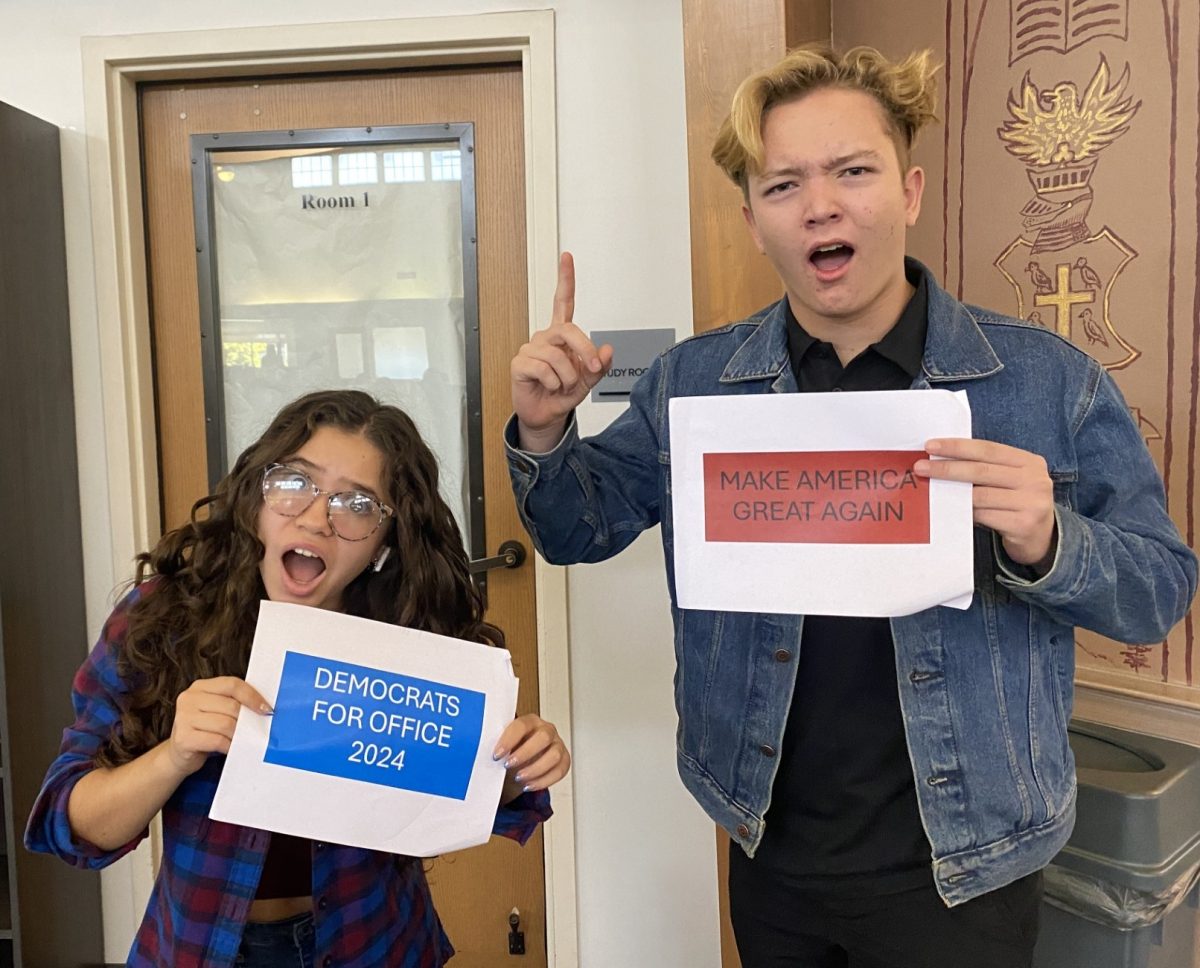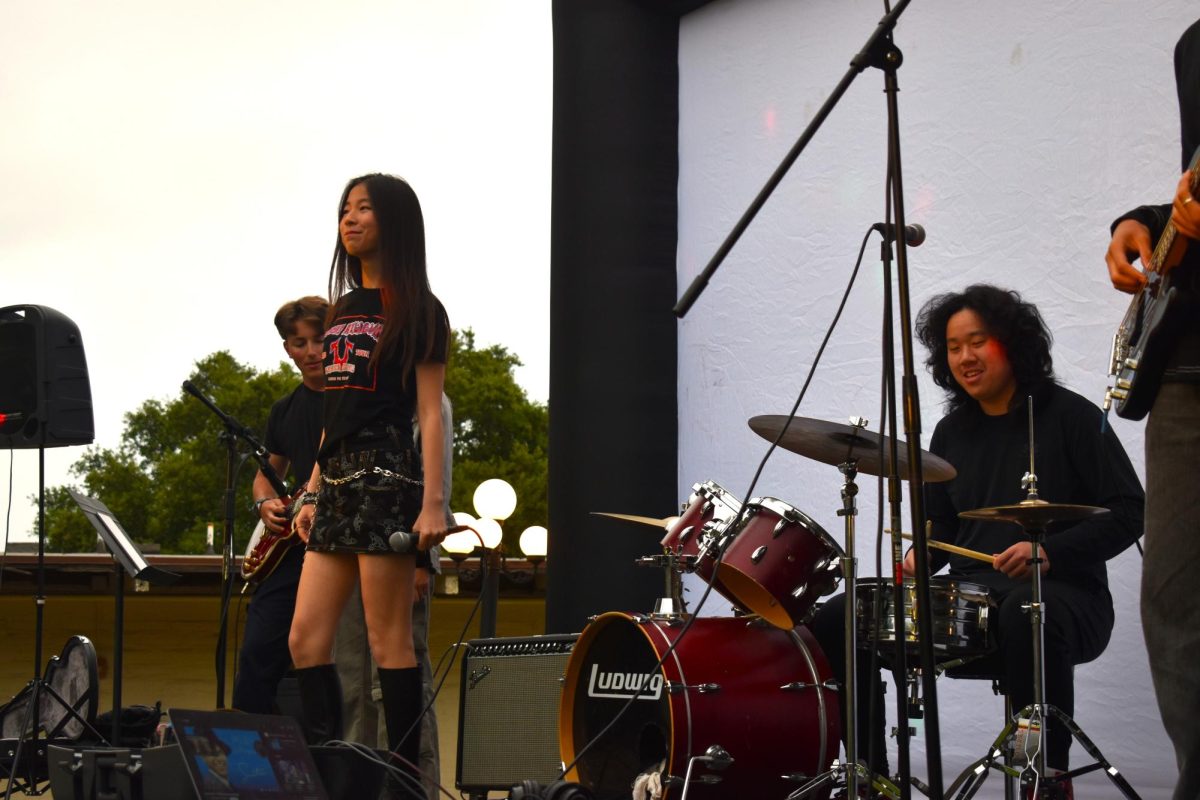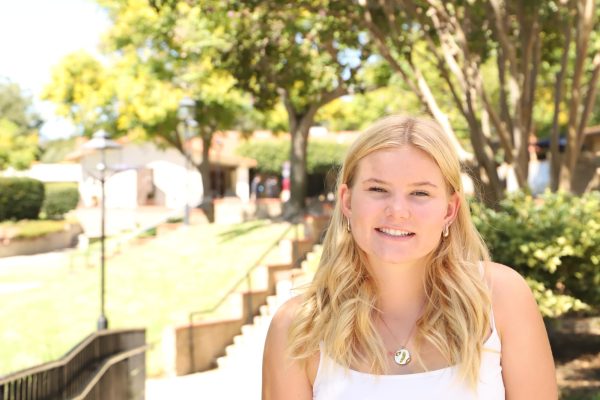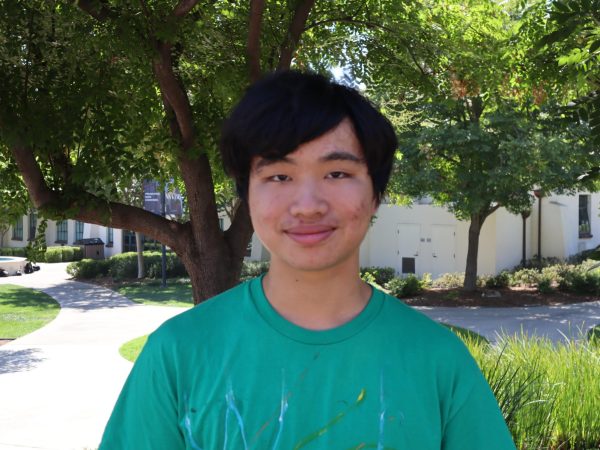After spending the last few minutes scrolling through a popular news outlet, you are appalled by the derogatory terms used against the current Vice President Kamala Harris or shocked by the death threats against former president Donald Trump.
You look up to share your opinions with your friends. However, you also notice the abundance of people around your friend group. You are not quite sure of their political opinions and prefer not to be described as overdramatic or radicalized. Rather than share yours, you go back to your phone. Unfortunately, this is an everyday truth for many Webb students.
Despite Webb marketing the concept of safe spaces to openly discuss differing opinions, many students do not feel comfortable sharing their political beliefs. This way of thinking has undermined the ability for growth and changes.
The “unbounded thinking” that has encouraged students to step out of their comfort zones and embrace new experiences does not seem to apply in the context of political differences.
John Choi, Director of Culture and Community, has spent the past few years promoting and encouraging students to navigate discussions on political topics with peers who differ in opinions.
“We’re talking about creating great community here, but also, part of our mission statement is to create future leaders,” said Mr. Choi. “And ‘future leaders’ don’t mean just future leaders here, because once you graduate, you need to make that impact in your college and beyond.”
Webb supports the opinions of the student body and works to produce leaders capable of acknowledging variety of opinions as inconsequential differences.
Opinions are often attributed to the background and experiences of the opinion holder. Without the knowledge of how someone gained their viewpoint, empathizing is difficult.
“We need to do a better job before we start saying what we believe in –– thinking, understanding, not only what the platform is for that person, but understanding what created that, what was the background and experiences that created that opinion and thought,” Mr. Choi said.
Although many students agree with Mr. Choi on trying to understand others, the practice is easier said than done. Saraya Chigoji (‘27), has shared her view of the political discussions at Webb from a student perspective.
“I would rather share my opinion in a class setting,” said Saraya. “In a casual setting, it’s easier to make things tense, especially when your friends are there and they’re not sure what to say, or if they don’t exactly agree with you, then it can create more awkward social settings.”
The classroom settings at Webb have guidelines and rules for open discussion that allow for mediated commentary with less fear of peer judgement. With this professional setting, students have respect for their teacher’s authority and therefore dedicate time to foster open Harkness spaces.
Classrooms guard rails are often discussed at the beginning of the year. Mutual decisions to engage joyfully and respect different opinions are encouraged and enforced.
“The guardrails are not to restrict,” said Mr. Choi. “Guardrails are to guide and keep us safe.”
Saraya shared that Webb’s small student body also attributes to an inability to comfortably speak openly on controversial topics.
“It’s like a micro action at Webb feels macro,” Saraya said.
Even when a small statement is made in a specific context, it is very easily misinterpreted and retold as such.
Through the cycle of misinterpretation and rumors, the small community allows gossip to spread like wildfire, inhibiting students from voicing any slightly controversial thought.
Fear of being misinterpreted may also tie back to a recent rise in cancel culture. Many creators have been removed from their platform as punishment for specific statements rather than educated and allowed to grow.
Mr. Choi and the equity team have spoken on how to exchange opinions, but the heavy lifting needs to come from students’ willingness to learn.
“Once you get to learn a person’s perspective, then you can craft your response so that it becomes a more productive conversation that doesn’t shut somebody down, it doesn’t automatically go into a level of conflict,” Mr. Choi said.
When faced with a difficult conversation, the only way to have a productive outcome is listening to understand rather than listening to respond. Take time to understand other views, then gather your thoughts before forming a reply.
Listening without immediately providing input is often disregarded. Webb students face graded Harkness discussions, requiring completely unique and detailed statements to obtain a four out of four grade. However, conclusions in political debates are made more often when the intention is to understand.
Another advantage of debating peers is the validation the conversation may bring to your own opinions.
“It’s important to keep people in your life that you disagree with, because it kind of affirms what you really believe in,” Saraya said.
Surrounding yourself with people carrying different opinions, especially political, may help you discover that difficult conversations can allow growth as both an individual within the community, and our community itself.










